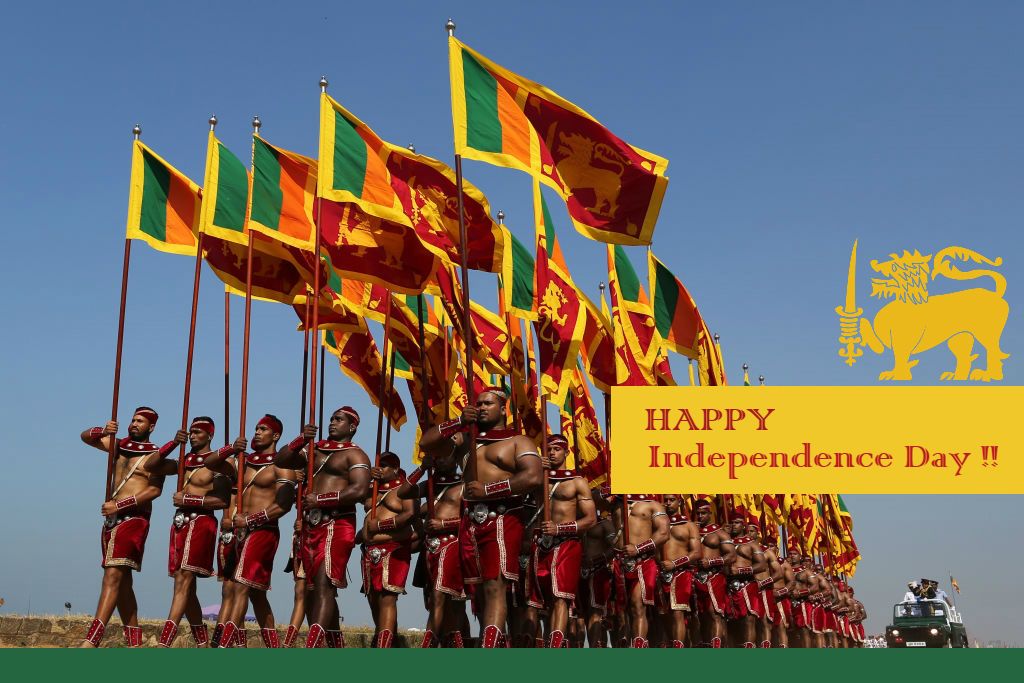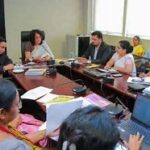
Wide Angle focuses on JVP-led NPP Government in 77th Independence Day Dilemma amidst Growing Challenges
- CNL Reporter
- February 2, 2025
- Weekly Political Review
- 77th Independence Day
- 0 Comments
Weekly Political Review
Government Struggles with Resignations of Key State Institution Chairmen as British Minister’s Visit Brings Focus on Economic Ties
This year marks Sri Lanka’s 77th Independence Day, a time for reflection on the lessons of the past and a moment to contemplate the future of the nation. Celebrating this significant occasion comes amidst the political shifts following the rise of the Janatha Vimukthi Peramuna (JVP)-led National People’s Power (NPP) to power.
Since assuming office, the new government has been under immense pressure to fulfill the promises made during the election campaign, while Sri Lanka continues its efforts to recover from the unprecedented economic crisis of 2022.
The NPP, which includes the Marxist JVP as its main constituent, has approached this year’s Independence Day with a critical stance. The JVP argues that the country’s true independence was not gained in 1948, but rather in 1972, marking the establishment of the Sri Lankan republic.
This view, however, has sparked internal debate within the NPP. On one side, hardliners, who share this view with other left-wing factions like the Lanka Sama Samaja Party (LSSP), advocate for a recognition of 1972 rather than 1948.
They are, however, hesitant to officially endorse Republic Day celebrations due to the political advantage it could provide to the Sri Lanka Freedom Party (SLFP) and its allies. On the other hand, more moderate voices within the NPP argue that continuing to observe Independence Day on February 4 is necessary to avoid political backlash, a viewpoint that has gained traction within the government.
For President Anura Kumara Dissanayake, the challenge lies in balancing the demands of his party’s policies with the political traditions of Sri Lanka. In response to the internal divisions, the government has decided to scale down this year’s Independence Day celebrations, a move that appears to aim at placating hardline JVP members while still maintaining the longstanding tradition of February 4th observances. This approach allows the government to demonstrate sensitivity to the country’s current economic hardships.
The NPP government faces a complex dilemma when it comes to recognizing the country’s first Prime Minister, D.S. Senanayake, and the United National Party (UNP), which, according to the NPP, has been responsible for Sri Lanka’s economic woes.
The issue of celebrating the country’s independence while rejecting the 1948 milestone—along with the influence of political figures like Senanayake—has led to potential contradictions that will likely be scrutinized by the media and political opponents. Whether the public will accept these contradictions remains uncertain.
On the international front, Sri Lanka has welcomed UK Minister for the Indo-Pacific, Catherine West, who is set to engage with newly appointed ministers in Sri Lanka’s government.
This visit signifies an effort to strengthen the UK-Sri Lanka partnership, focusing on inclusive economic growth, anti-corruption initiatives, human rights, and national reconciliation. Minister West’s visit is expected to bolster trade relations, with new export procedure handbooks designed to help Sri Lankan businesses access the UK market.
Additionally, the visit will shine a spotlight on Sri Lanka’s post-war rehabilitation efforts, particularly in Jaffna, as well as on climate adaptation projects addressing issues like groundwater depletion.
Domestically, President Dissanayake has outlined a series of ambitious reforms aimed at improving Sri Lanka’s economic landscape, including enhancing the ease of doing business and listing state-owned enterprises (SOEs) on the stock exchange.
However, the government faces growing discontent from the public, as it quickly lost the traditional honeymoon period enjoyed by new administrations.
Criticism of the government’s actions, particularly concerning broken election pledges, has been intensifying. Some JVP/NPP supporters, instead of addressing the government’s shortcomings, have turned on those voicing dissent, reminiscent of the mistakes made during former President Gotabaya Rajapaksa’s tenure.
Despite some remaining goodwill towards the JVP/NPP government, it would be prudent for President Dissanayake to remain attuned to public concerns to avoid alienating the masses. In response to criticism, the government has initiated a series of public meetings, led by the President, to engage directly with the people.
However, some public remarks made by government ministers and deputy ministers, such as controversial comments about coconut milk and the lack of space for squirrels, have sparked ridicule on social media, further straining the government’s public image.
Additionally, the resignation of several heads of state institutions, appointed after the NPP took power, raises concerns about the government’s decision-making processes and internal conflicts. These departures include high-ranking officials from institutions such as the Sri Lanka Rupavahini Corporation and the Sri Lanka Transport Board, contributing to the growing perception of dysfunction within the administration.
On the economic front, Sri Lanka’s currency is expected to face further depreciation in 2025 due to increased import demand, the resumption of external debt servicing, and the need to bolster foreign exchange reserves.
A recent report from Bloomberg Economics highlighted these risks, noting that the Sri Lankan rupee had been the worst-performing emerging market currency at the end of January 2025, after being the best performer in 2024. While some experts, including Central Bank Governor Dr. Nandalal Weerasinghe, have sought to downplay the significance of currency fluctuations on overall economic stability, the country’s economic outlook remains uncertain.
As Sri Lanka gears up for local government elections in April 2025, the NPP government faces the challenge of maintaining its appeal among the electorate. Opposition parties are already positioning themselves for the elections, and discussions are underway to form alliances aimed at capitalizing on the growing disillusionment with the ruling government.
In response, the NPP government is exploring mechanisms to monitor the performance of ministries, which could involve setting up new committees to oversee government functions. This move is seen by some as an attempt to further involve the JVP in government affairs and ensure greater oversight.
President Dissanayake continues to focus on investigations into corruption and fraud during previous administrations, revealing new details about efforts to suppress legal cases under former governments.
At a public meeting in Homagama, he commended a legal officer for withholding a case file to prevent its interference under prior regimes, reinforcing his administration’s commitment to justice. The President has also reassured the public that while some suspects may be granted bail, the government’s priority is to build strong cases and ensure accountability.
In addition to these political and economic challenges, President Dissanayake’s recent visits to the northern region have highlighted ongoing development issues, particularly the lack of proper infrastructure in rural areas like Jaffna.
His interactions with local government officials, however, revealed a disorganized response to critical infrastructure needs, prompting further questions about the government’s ability to address regional disparities.
Finally, former President Ranil Wickremesinghe’s recent visit to the late Victor Ivan’s residence in Galle revealed the ongoing political dynamics in Sri Lanka, as he fielded concerns from villagers about the rising cost of living and shortages of essential goods. Wickremesinghe’s diplomatic response to these grievances reflects the challenges faced by politicians in navigating public dissatisfaction, particularly as the country contemplates its political future.
As Sri Lanka faces its 77th Independence Day, it finds itself at a crossroads—navigating political complexities, economic instability, and the need for national reconciliation. The actions of the current government, particularly in addressing public concerns and aligning its policies with the promises made to voters, will determine whether the country can move beyond the crises of the past and chart a new path forward.

